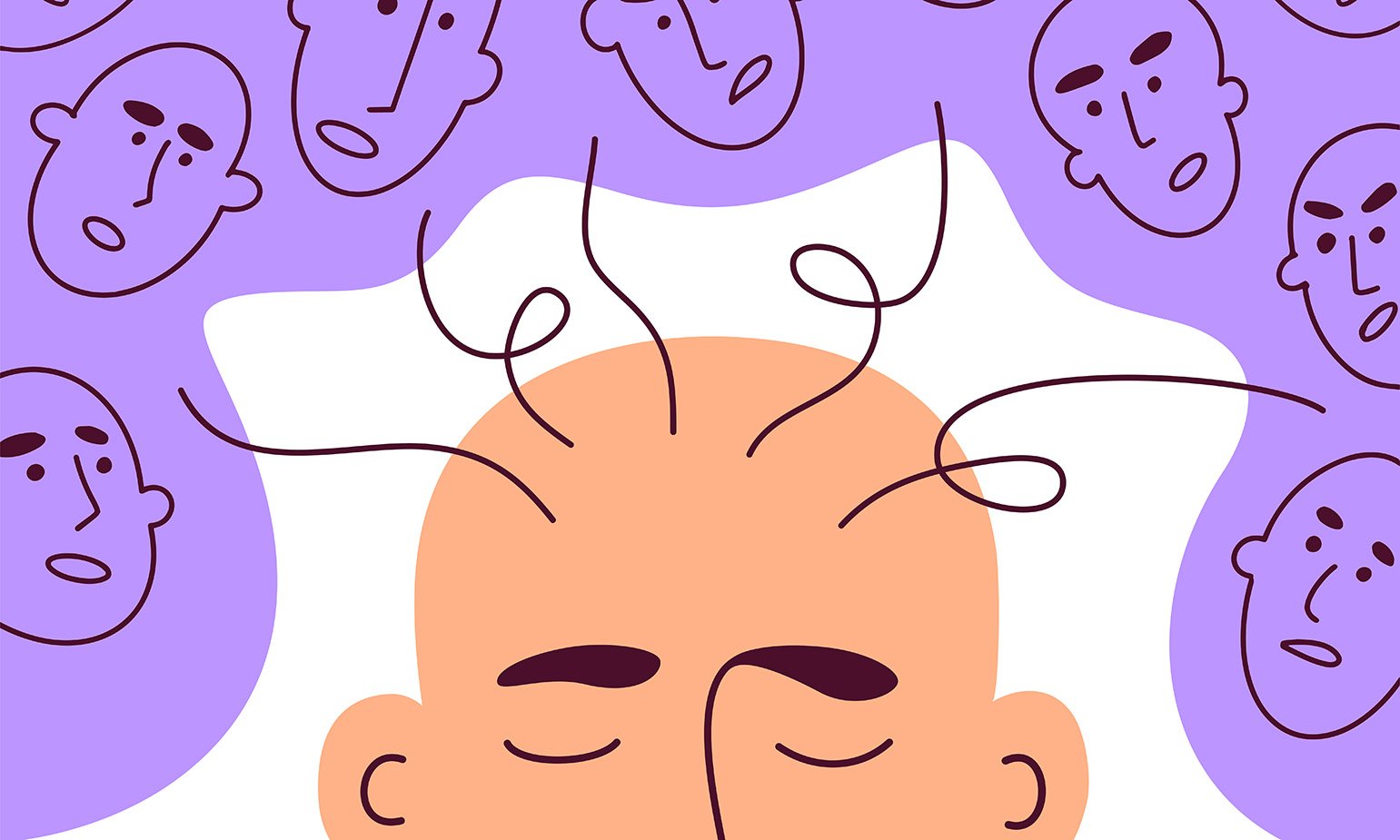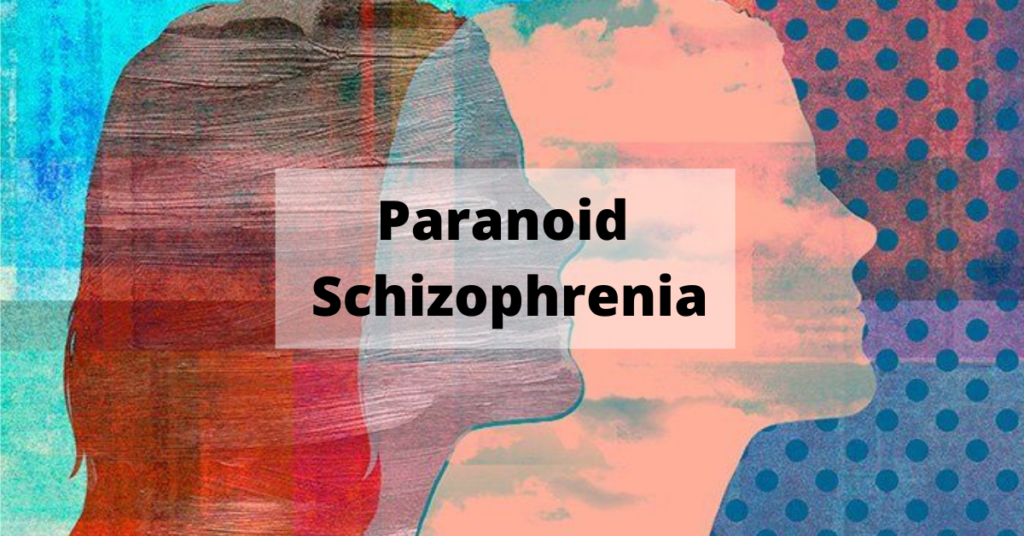Do you know someone who is paranoid? They may be experiencing symptoms of paranoid schizophrenia. This is a serious mental illness that requires treatment. In this blog post, we will discuss the signs and symptoms of paranoid schizophrenia, as well as the treatments available. We hope that this information will help you to better understand this condition and to provide support for those who are affected by it.
Contents
- 1 What Is Paranoid Schizophrenia?
- 2 Symptoms of Paranoid Schizophrenia
- 3 Causes of Paranoid Schizophrenia
- 4 Impacts of Paranoid Schizophrenia
- 5 Diagnosis of Paranoid Schizophrenia
- 6 Treatment For Paranoid Schizophrenia
- 7 Managing Paranoid Schizophrenia
- 8 Preventing Paranoid Schizophrenia
- 9 Helping Someone With Paranoid Schizophrenia
- 10 Conclusion
- 11 A Word From Therapy Mantra
What Is Paranoid Schizophrenia?
 Paranoid schizophrenia is a mental disorder that causes hallucinations, delusions, and disordered thinking. It is the most common type of schizophrenia. People with paranoid schizophrenia may feel like they are being watched or followed, and they may believe that others are trying to harm them.
Paranoid schizophrenia is a mental disorder that causes hallucinations, delusions, and disordered thinking. It is the most common type of schizophrenia. People with paranoid schizophrenia may feel like they are being watched or followed, and they may believe that others are trying to harm them.
This ailment also has some symptoms in common with other conditions, including depression and bipolar disorder. Schizophrenia is a complex disease that can be difficult to diagnose.
The reasons can be various: for instance, you may have a genetic predisposition to psychotic disorders. Also, the world around us can be so intensive and complicated that it is easy to get lost in thoughts or even lose your mind. That is why it’s crucial to know what paranoid schizophrenia is and how to fight back against its symptoms.
Symptoms of Paranoid Schizophrenia

There are many symptoms of paranoid schizophrenia, and they can vary from person to person. However, some of the most common symptoms include:
Hallucinations
Seeing or hearing things that are not there is a hallmark sign of schizophrenia. These hallucinations can be visual, auditory, olfactory (smelling), gustatory (tasting), or somatic (feeling). Sometimes this symptom can be so severe that it disrupts daily life.
Delusions
People with paranoid schizophrenia often have delusions, which are false beliefs that are not based on reality. For example, a person with this condition may believe that they are being followed or spied on, or that someone is out to get them.
Disordered Thinking
Schizophrenia can cause people to think in a disorganized way. This may manifest as having racing thoughts, difficulty focusing, or tangential thinking (going off on unrelated tangents).
Social Withdrawal
People with paranoid schizophrenia may withdraw from social activities and become isolated. They may also lose interest in things they used to enjoy. Sometimes these all-encompassing delusions can make it difficult for people with this condition to have normal social interactions.
Aggression
Aggression is something one can see in people who have paranoia. They often start to act aggressively and without any reason. This also leads to their social isolation and the loss of interest in normal social activities.
Difficulty Functioning
Schizophrenia is a chronic mental health condition that can be difficult to treat. It often requires medication, therapy, and lifestyle changes. People with this disease may have difficulty managing daily tasks or holding down a job; many people with schizophrenia are unable to live on their own without help from others.
Lack of Motivation
In some cases, this ailment is accompanied by a lack of motivation or interest in daily life activities as well as apathy (lack of emotion). Most often, patients can lose their desire to work or do anything that requires concentration. Fatigue is also one of the symptoms along with depression, which is not usually seen in schizophrenia but may appear if a person does not take medication regularly.
Causes of Paranoid Schizophrenia

The exact cause of paranoid schizophrenia isn’t clear yet; however, researchers believe it develops due to a mix-up of some factors. Some of these are:
Genetics
Genetics is known to be one of the reasons for schizophrenia. Some studies have shown that people who have a family history of this disease are more likely to get it than others without such an inheritance.
Brain Structure and Functioning
Researchers believe that some parts of our brain play an important role in paranoid schizophrenia’s development. The region responsible for memory, attention span, and problem-solving skills may not function properly due to which we can see symptoms like hallucinations or delusions manifest themselves as well. This ailment also affects areas associated with emotion regulation (so patients feel angry all the time) and motivation levels so much so with paranoia – they don’t want anything anymore! People might experience problems when communicating their thoughts verbally because these regions are also associated with language.
Environment
It is believed that environmental factors like stress, traumatic life events, or abuse during childhood may trigger paranoid schizophrenia in people who are genetically susceptible to it. However, this is still being studied and more research is needed in this area. Sometimes, discontinuing the use of illicit drugs like marijuana can also improve the symptoms.
Impacts of Paranoid Schizophrenia
 There are many impacts of schizoaffective disorder. One of the most common is that people with this disorder often have a hard time holding down a job or completing school. They may also have difficulty maintaining relationships and can be quite reclusive. Another impact is that people with schizoaffective disorder are at an increased risk for suicide. This is especially true if they are experiencing psychotic symptoms such as hallucinations or delusions.
There are many impacts of schizoaffective disorder. One of the most common is that people with this disorder often have a hard time holding down a job or completing school. They may also have difficulty maintaining relationships and can be quite reclusive. Another impact is that people with schizoaffective disorder are at an increased risk for suicide. This is especially true if they are experiencing psychotic symptoms such as hallucinations or delusions.
People with paranoid schizophrenia may experience some different impacts than those listed above. For example, they may become very suspicious of others and withdrawn from social situations. They may also feel like everyone is out to get them or that they are being watched all the time. These types of delusions can be extremely distressing and can lead to a great deal of anxiety and paranoia.
There can be some positive impacts of paranoid schizophrenia as well. For example, people with this disorder may be very creative and have excellent memory. They may also be able to see things in a different way than others, which can lead to new insights and ideas. Sometimes people who have had this disorder can go on to lead highly successful lives.
If you or someone you know is struggling with paranoid schizophrenia, it is important to get help. There are many treatments available that can help manage the symptoms of this disorder. It is also important to have a support system in place to help you through tough times. With treatment and support, people with paranoid schizophrenia can lead happy and productive lives.
Diagnosis of Paranoid Schizophrenia

There are many ways to diagnose paranoid schizophrenia. One of the first steps is to rule out other causes for your symptoms, such as medication side effects or substance abuse. If there are no other obvious causes for your symptoms and you have had delusions or hallucinations for at least one month (or less if untreated), it’s time to see a doctor who specializes in mental health.
An assessment includes a physical exam, lab tests, an interview with a mental health professional, and an interview with someone close to you. The goal is to assess how much your thoughts, feelings, and behaviors are interfering with your life so that doctors can identify the best treatment plan moving forward.
Treatment For Paranoid Schizophrenia

There is no one-size-fits-all approach to treating paranoid schizophrenia; however, most people require a combination of medication, therapy, and lifestyle changes.
Medication
The mainstay of treatment for paranoid schizophrenia is usually medication. Some common medications used to treat this condition include antipsychotic drugs (like haloperidol or risperidone), antidepressants (like fluoxetine or sertraline), and mood stabilizers (like lithium). Sometimes benzodiazepines are also prescribed on an as-needed basis. These drugs help to decrease the symptoms associated with paranoid schizophrenia and improve functioning in people who have this disease.
Therapy
Psychotherapy is another important aspect of treatment for this condition. Many people with paranoid schizophrenia don’t seek out counseling because they believe it will not work or they feel ashamed about their illness, so family members need to encourage them to do so.
Cognitive-behavioral therapy can be helpful when combined with medication because it teaches you how your thoughts affect moods and behaviors – then change those thoughts through exercises such as deep breathing techniques (which can reduce anxiety) or mindfulness meditation sessions where one focuses only on what’s happening at that moment without worrying about past events or future plans.
Self-Help
Sometimes, people with paranoid schizophrenia can also benefit from self-help strategies. This includes activities like journaling, which helps to document thoughts and feelings in a safe place, or exercise, which releases endorphins that improve moods. Joining a support group can also be helpful as it allows you to connect with others who understand what you’re going through.
Managing Paranoid Schizophrenia

There are many different ways to manage paranoid schizophrenia. The most important part of managing this
Taking Medications As Prescribed
One should always take medications as prescribed by the doctor. This is especially important when one has a mental illness like paranoid schizophrenia. Sometimes people stop taking their medications because they feel better or because they don’t like the side effects. This can be very dangerous and can lead to a relapse.
Getting Help
If one is feeling overwhelmed or struggling with paranoid schizophrenia, it is important to reach out for help. There are many different types of support available, including therapy, medication management, and peer support groups. It can be scary to ask for help, but it is worth it in the end.
Living Healthy Lifestyle
A healthy lifestyle is important for everyone, but it is especially important for those living with a mental illness like paranoid schizophrenia. Eating healthy foods, getting enough exercise, and getting adequate sleep can all help improve one’s mood and overall well-being.
Staying Connected To Support System
It is also important to stay connected to a support system. This could be family, friends, or a therapist. Talking about what is going on in one’s life can help keep one on track.
Avoiding Substance Abuse
Substance abuse can make managing paranoid schizophrenia more difficult. It is important to avoid alcohol and drugs as much as possible.
Getting Regular Mental Health Check-ups
Regular mental health check-ups are very important for those with paranoid schizophrenia. This will allow the doctor to monitor how the medication is working and make any necessary adjustments.
Preventing Paranoid Schizophrenia

There are many ways to prevent paranoid schizophrenia.
Eating Good Food
Sometimes people with paranoid schizophrenia don’t eat well. This can be due to not having an appetite or only wanting unhealthy foods. It is important to try and eat healthy foods as much as possible.
Getting Enough Exercise
Exercise is another way to help keep oneself healthy. It is especially important for those with paranoid schizophrenia, who are at a higher risk of developing other health problems. It also helps to release tension and can be calming.
Staying Positive
It is important to stay positive when dealing with paranoid schizophrenia. This can be difficult, but it is not impossible. There are many things that can help, like listening to music or spending time outdoors.
Taking Care of Oneself
It is important to take care of oneself when dealing with paranoid schizophrenia. This means getting enough sleep, eating well, and exercising. It can also be helpful to have a support system in place. Sometimes it is helpful to talk to someone who understands what it is like to have paranoid schizophrenia.
Helping Someone With Paranoid Schizophrenia

There are many ways to help someone with paranoid schizophrenia as well. Some of these are:
Talking To Them
Talking to someone who is experiencing paranoid schizophrenia can be very helpful. It allows them to express what they are feeling and might help reduce their paranoia.
Being There for Them
It is also important to be there for them. This could mean taking care of them when they are not feeling well, providing support, or just being a friend.
Reminding Them to Take Their Medication
It can be helpful to remind someone with paranoid schizophrenia to take their medication. This will help keep them on track and ensure that they are getting the most out of it.
Monitoring Their Behavior
It is also important to monitor their behavior and look out for any signs that might indicate that they are becoming more paranoid. This can help catch problems early and get treatment if necessary.
Giving Them Space
It can be helpful to give someone with paranoid schizophrenia space if they need it. This will allow them an opportunity to regroup and collect their thoughts without feeling pressured or watched over by others all the time.
Being Patient With Them
It is important to be patient with someone who has paranoid schizophrenia. They may not always understand what you’re saying or how things are going at first, but eventually, they’ll get used to being around other people again when given enough time. It’s also good for yourself since then you won’t feel frustrated as well.
Conclusion
Paranoid schizophrenia is the most common form of schizophrenia. The symptoms can be treated with medication and psychotherapy, so there’s often a good chance that you can lead a relatively normal life if diagnosed with it. However, getting treatment right away is crucial because symptoms may worsen as time goes on.
If you or someone you know has been displaying some of these signs and symptoms, see your doctor right away to get an accurate diagnosis before complications arise.
You can also contact us for more information on how you or your loved one can cope with paranoid schizophrenia.
A Word From Therapy Mantra
Your mental health — your psychological, emotional, and social well-being — has an impact on every aspect of your life. Positive mental health essentially allows you to effectively deal with life’s everyday challenges.
At Mantra Care, we have a team of therapists who provide affordable online therapy to assist you with issues such as depression, anxiety, stress, relationship, OCD, LGBTQ, and PTSD. You can take our mental health test. You can also book a free therapy or download our free Android or iOS app.


